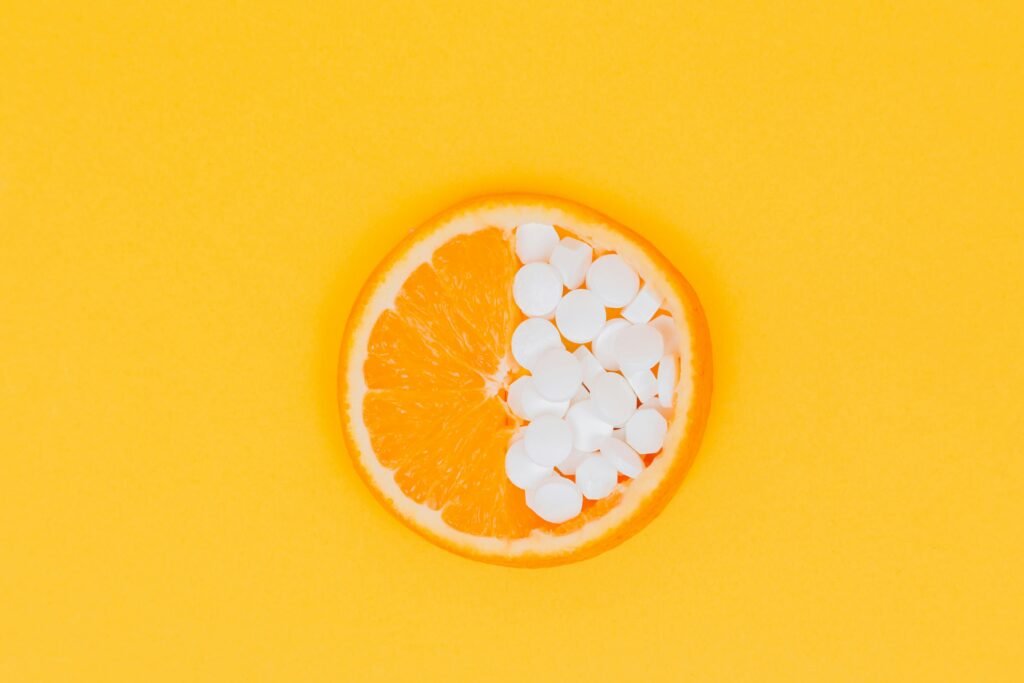Have you ever wondered if there are alternative therapies for mental health issues? In a world where traditional treatments, such as medication and therapy, are commonly prescribed, it can be refreshing to explore alternative options. This article will delve into the realm of alternative therapies for mental health, offering insights into their effectiveness and benefits. Whether you’re seeking a complementary approach or looking for a new path to healing, read on to discover the possibilities beyond conventional treatments.

Overview
When it comes to mental health treatment, traditional approaches such as therapy and medication are often the go-to options. However, many individuals are seeking alternative therapies that can complement or even replace these conventional methods. Alternative therapies offer a holistic approach to mental well-being, focusing on the balance between mind, body, and spirit. In this comprehensive article, we will explore various types of alternative therapies that have shown promise in supporting mental health.
Herbal and Natural Supplements
One alternative therapy that has gained popularity is the use of herbal and natural supplements. These supplements are derived from plants and have been used for centuries to promote overall wellness. Some examples of herbal and natural supplements that have shown potential in supporting mental health include St. John’s Wort, Omega-3 Fatty Acids, and Saffron.
St. John’s Wort
St. John’s Wort is a herb that has been traditionally used to treat mood disorders such as depression and anxiety. It is believed to work by increasing the levels of serotonin, a neurotransmitter associated with mood regulation, in the brain. While St. John’s Wort may be effective for mild to moderate depression, it is important to consult with a healthcare professional before adding it to your treatment plan, as it can interact with certain medications.
Omega-3 Fatty Acids
Omega-3 fatty acids, commonly found in fish oil, have been studied for their potential benefits in mental health. Research suggests that omega-3 fatty acids may help reduce symptoms of depression, improve cognitive function, and support overall brain health. Incorporating foods rich in omega-3 fatty acids, such as fatty fish, chia seeds, and walnuts, or taking omega-3 supplements may be beneficial for mental well-being.
Saffron
Saffron, a spice derived from the Crocus sativus plant, has been traditionally used in Ayurvedic and Persian medicine to enhance mood and relieve symptoms of depression. Research has shown that saffron supplementation can be as effective as certain antidepressant medications in reducing symptoms of depression. However, more research is needed to fully understand its mechanism of action and optimal dosage.
Mindfulness and Meditation
Mindfulness and meditation practices have gained significant attention for their potential benefits in promoting mental well-being. These practices involve focusing on the present moment, cultivating awareness, and developing a non-judgmental attitude. The practice of mindfulness has been shown to reduce stress, improve mood, and enhance overall psychological well-being.
Benefits of Mindfulness
Research has demonstrated various benefits of mindfulness for mental health. Regular mindfulness practice has been found to reduce symptoms of anxiety, depression, and stress. It can also improve attention span, emotional regulation, and overall resilience. Engaging in mindfulness exercises, such as mindful breathing, body scan meditation, and loving-kindness meditation, can contribute to a greater sense of calm and well-being.
Different Types of Meditation Techniques
There are various meditation techniques, each with its own focus and purpose. Some commonly practiced meditation techniques include:
- Mindfulness meditation: This involves observing the present moment, including thoughts, sensations, and emotions, without judgment.
- Loving-kindness meditation: This practice cultivates feelings of compassion and kindness towards oneself and others.
- Transcendental meditation: This technique involves the repetition of a particular mantra to quiet the mind and achieve a state of deep relaxation.
- Guided imagery meditation: Through visualization and guided narratives, this meditation technique helps individuals create positive mental images to promote relaxation and well-being.
Research on Mindfulness and Mental Health
Scientific studies have shown promising results regarding the effectiveness of mindfulness-based interventions in mental health treatment. Mindfulness-based stress reduction (MBSR) and mindfulness-based cognitive therapy (MBCT) have demonstrated positive outcomes in reducing symptoms of anxiety, depression, and chronic pain. These practices offer an alternative approach for individuals seeking non-pharmacological treatments for mental health concerns.
Acupuncture
Another alternative therapy that has gained recognition for its potential in mental health treatment is acupuncture. Originating from traditional Chinese medicine, acupuncture involves the insertion of thin needles into specific points on the body. It is believed to regulate the flow of energy, known as Qi, and restore balance within the body.
How Acupuncture Works
Acupuncture is based on the concept of meridians, which are pathways that energy flows through in the body. By inserting needles at specific acupuncture points along these meridians, practitioners aim to restore the natural flow of energy and promote overall well-being. Acupuncture is commonly used to treat various mental health issues, including anxiety, depression, and insomnia.
Effectiveness of Acupuncture in Treating Mental Health Issues
Research on acupuncture’s effectiveness in mental health treatment has yielded mixed results. While some studies have shown positive outcomes in reducing symptoms of depression and anxiety, others have found no significant improvement. It is important to note that individual responses to acupuncture can vary, and it may not be effective for everyone. Consulting with a qualified acupuncturist and discussing your specific mental health concerns is crucial in determining if acupuncture is a suitable treatment option for you.
Potential Risks and Side Effects
Acupuncture is generally considered safe when performed by a trained and licensed practitioner. However, there are potential risks and side effects associated with the procedure. These may include bruising, bleeding, infection, or discomfort at the insertion sites. It is essential to choose a reputable practitioner who follows proper hygiene and sterilization practices to minimize the risk of complications.

Yoga and Exercise
Yoga and exercise are often recommended as part of a comprehensive approach to mental health. These practices not only enhance physical fitness but also contribute to emotional well-being and stress reduction.
Yoga for Mental Health
Yoga combines physical postures, breathing exercises, and meditation to promote harmony between mind and body. It has been shown to reduce symptoms of anxiety, depression, and PTSD while improving mood, sleep quality, and overall quality of life. The mindful and meditative aspects of yoga help cultivate self-awareness and promote emotional resilience.
Benefits of Exercise for Mental Health
Regular exercise, such as aerobics, strength training, or even walking, has been associated with numerous mental health benefits. Exercise releases endorphins, chemicals in the brain that promote feelings of happiness and well-being. It can also reduce symptoms of anxiety and depression, improve cognitive function, and enhance self-esteem. Engaging in physical activity not only supports mental well-being but also contributes to overall physical health.
Incorporating Yoga and Exercise into Treatment Plans
Yoga and exercise can be incorporated into a comprehensive mental health treatment plan to enhance overall well-being. Consult with a healthcare professional or mental health provider to determine the most suitable types and intensity of exercises based on your physical health and mental health goals. Integrating yoga or exercise routines into your daily life can empower you to take an active role in managing your mental well-being.
Art and Music Therapies
Art and music therapies provide individuals with creative outlets to express themselves and explore their emotions. These therapeutic approaches engage the senses and evoke emotional responses, offering a unique avenue for self-reflection and healing.
Art Therapy for Mental Health
Art therapy involves using various art forms, such as painting, sculpting, or drawing, to facilitate personal growth, improve emotional well-being, and foster self-expression. It allows individuals to communicate and process emotions that may be difficult to verbalize. Art therapy has been shown to be effective in reducing symptoms of anxiety, depression, and PTSD while enhancing self-esteem and overall quality of life.
Music Therapy for Mental Health
Music therapy utilizes music and its elements, such as rhythm, melody, and lyrics, to address emotional, social, and cognitive needs. It can involve listening to music, playing musical instruments, singing, or songwriting. Music therapy has been found to alleviate symptoms of depression, anxiety, and chronic pain, while promoting emotional expression and stress reduction.
Evidence of Effectiveness
Numerous studies have demonstrated the effectiveness of art and music therapies in improving mental health outcomes. These therapies offer unique approaches to support individuals in managing their mental health concerns, enhancing self-awareness, and promoting overall well-being. Incorporating art or music therapies into treatment plans can provide additional tools for self-expression and personal growth.

Animal-Assisted Therapy
Animal-assisted therapy involves interactions with animals to enhance physical, emotional, and social well-being. Animals, such as dogs, cats, horses, or even dolphins, can provide comfort, companionship, and motivation for individuals facing mental health challenges.
Benefits of Animal-Assisted Therapy
Animal-assisted therapy has shown numerous benefits for mental health, including stress reduction, improved mood, increased social interaction, and enhanced emotional well-being. Human-animal interactions release oxytocin, a hormone associated with bonding and relaxation, which can promote feelings of calm and connection. Animals can also provide non-judgmental support, reducing feelings of loneliness and isolation.
Different Types of Animal-Assisted Therapy
There are various types of animal-assisted therapy, each with its own unique focus and benefits. Some commonly used techniques include:
- Canine-assisted therapy: Involves interactions with trained therapy dogs to provide comfort and companionship.
- Equine-assisted therapy: Involves interactions with horses to develop trust, emotional regulation, and self-confidence.
- Dolphin-assisted therapy: Involves interactions with dolphins to promote relaxation, improve socialization skills, and enhance cognitive function.
- Pet-assisted therapy: Involves interactions with household pets, such as cats or rabbits, to provide emotional support and companionship.
Examples of Successful Programs
Numerous successful animal-assisted therapy programs have been implemented around the world. For example, therapy dogs are often found in schools, hospitals, and nursing homes, providing comfort and emotional support to individuals of all ages. Equine-assisted therapy has been used to help individuals with a range of mental health issues, including PTSD and autism. These programs demonstrate the profound impact that animals can have on mental well-being and highlight the potential of animal-assisted therapy as an alternative treatment option.
Ayurvedic Medicine
Ayurvedic medicine, originating from India, offers a holistic approach to well-being by focusing on the interplay of mind, body, and spirit. It incorporates various herbs, lifestyle practices, and dietary recommendations to restore balance and promote overall health.
Principles and Practices of Ayurveda
Ayurveda is based on the belief that each individual has a unique constitution, or dosha, which influences their physical and mental characteristics. The three doshas are Vata (air and space), Pitta (fire and water), and Kapha (earth and water). Ayurvedic medicine aims to balance these doshas through personalized dietary adjustments, herbal remedies, and lifestyle modifications. Practitioners may recommend specific practices such as meditation, yoga, or oil massages to support mental well-being.
Herbs and Treatments Used in Ayurvedic Medicine
Ayurvedic medicine utilizes a wide range of herbs and treatments to promote mental health. Herbs such as Ashwagandha, Brahmi, and Tulsi have been traditionally used to reduce stress, enhance cognitive function, and support overall well-being. Ayurvedic treatments may also include Panchakarma, a detoxification process, and Nasya, the administration of herbal oils through the nasal passage, to rebalance the body and mind.
Integration with Conventional Mental Health Care
It is important to note that Ayurvedic medicine should not replace conventional mental health care but rather serve as a complementary approach. Consult with a qualified Ayurvedic practitioner who can work alongside your mental health provider to develop a comprehensive treatment plan. Integrating Ayurvedic principles and practices into your lifestyle, such as adopting a balanced diet, managing stress, and practicing self-care, may support your overall mental health and well-being.

Energy Healing
Energy healing refers to various practices that aim to balance the energy flow within the body to promote healing and well-being. These practices work on the premise that imbalances in energy can contribute to physical and mental health issues.
Different Forms of Energy Healing
There are several forms of energy healing, each with its own approach and techniques. Some examples include:
- Reiki: Involves the transfer of healing energy through the hands of a practitioner to the recipient, promoting relaxation, stress reduction, and overall well-being.
- Healing Touch: Utilizes hand techniques to clear and balance energy in the body, supporting the body’s natural healing processes.
- Acupuncture: Based on the concept of balancing energy flow within the body, acupuncture involves inserting thin needles at specific points to promote healing and restore balance.
Effectiveness of Energy Healing in Mental Health
The effectiveness of energy healing in mental health is a topic of ongoing research and debate. Some individuals report positive outcomes, such as reduced anxiety and improved mood, while others may not experience significant benefits. It is important to approach energy healing with an open mind and consult with a qualified practitioner who can assess your specific needs and provide guidance.
Controversies and Criticisms
Energy healing practices have faced criticism from skeptics who question the scientific basis and efficacy of such therapies. Some argue that the perceived benefits of energy healing may be attributed to placebo effects or other psychological factors. As research in this field continues to evolve, it is essential to approach energy healing with a discerning mindset and consider it as a complementary approach, rather than a standalone treatment, for mental health concerns.
Diet and Nutrition
The impact of diet and nutrition on mental health is an emerging area of research. Growing evidence suggests that the food we eat can affect our mood, cognitive function, and overall mental well-being.
Impact of Diet on Mental Health
Research has shown that certain dietary patterns, such as the Mediterranean diet, rich in fruits, vegetables, whole grains, and lean proteins, may have a positive impact on mental health. On the other hand, diets high in processed foods, sugar, and unhealthy fats have been associated with an increased risk of depression and anxiety. Maintaining a nutritious, well-balanced diet that includes essential nutrients, vitamins, and minerals is crucial for supporting mental health.
Nutritional Supplements for Mental Well-Being
In addition to a healthy diet, certain nutritional supplements may provide support for mental well-being. For example, vitamin D deficiency has been linked to an increased risk of depression, and supplementation may be beneficial, especially in regions with limited sunlight exposure. Other nutrients, such as B vitamins, omega-3 fatty acids, and magnesium, have also been studied for their potential mental health benefits. However, it is important to consult with a healthcare professional before starting any new supplements to ensure they are safe and appropriate for your individual needs.
The Role of Gut Health in Mental Health
Emerging research suggests a strong connection between gut health and mental health. The gut is home to trillions of bacteria that play a crucial role in digestion, nutrient absorption, and immune function. This gut microbiota also communicates with the brain through the gut-brain axis, influencing mood, cognition, and behavior. Maintaining a healthy gut microbiome through a balanced diet, probiotics, and prebiotics may positively impact mental well-being.
In conclusion, alternative therapies offer a range of options for individuals seeking additional support for their mental health concerns. From herbal supplements to mindfulness practices, acupuncture to animal-assisted therapy, there are various approaches to explore. It is important to consult with a healthcare professional or mental health provider to determine the most suitable options for your individual needs. Remember that alternative therapies should not replace conventional treatments but can complement them to enhance overall well-being and improve mental health outcomes.



